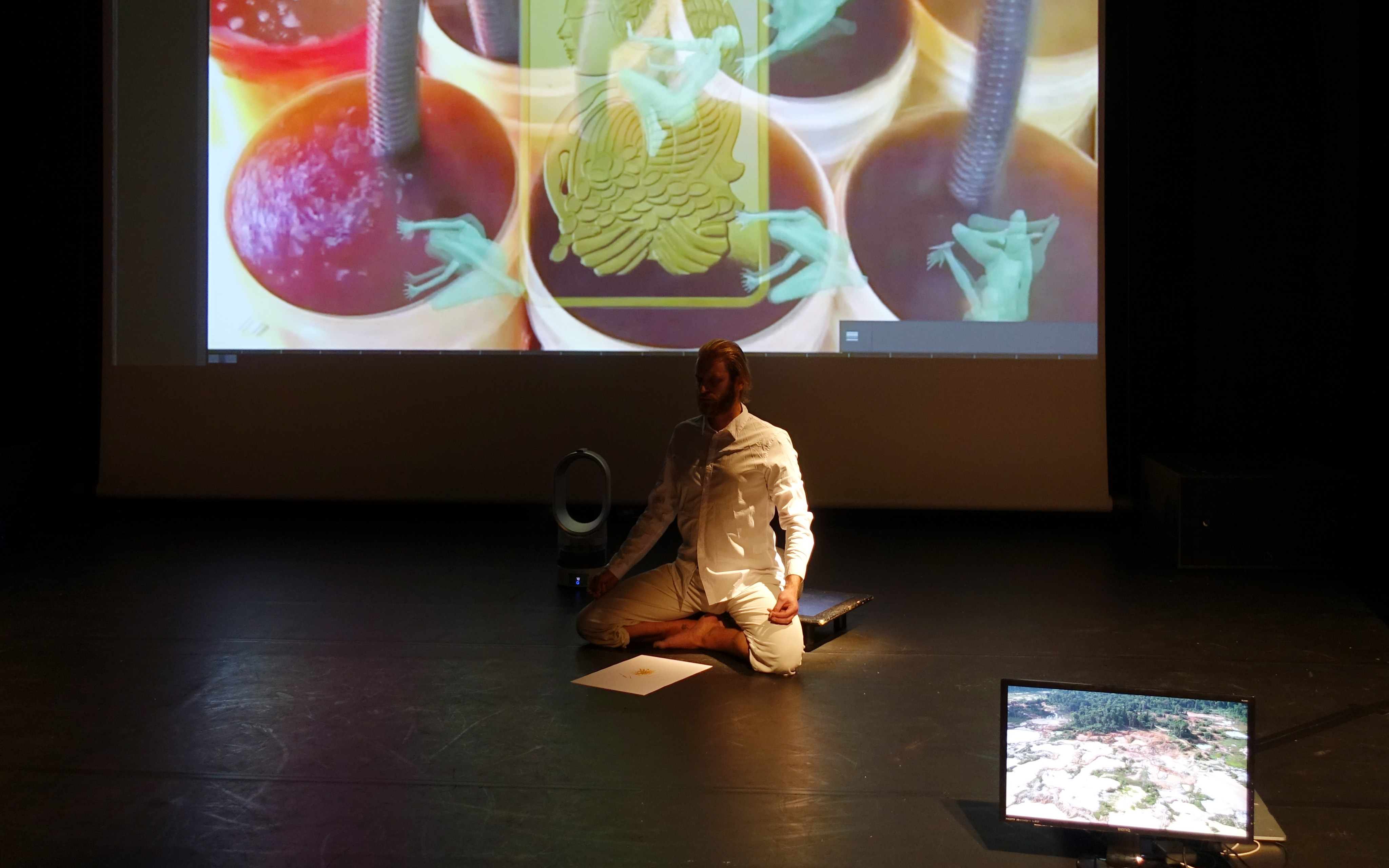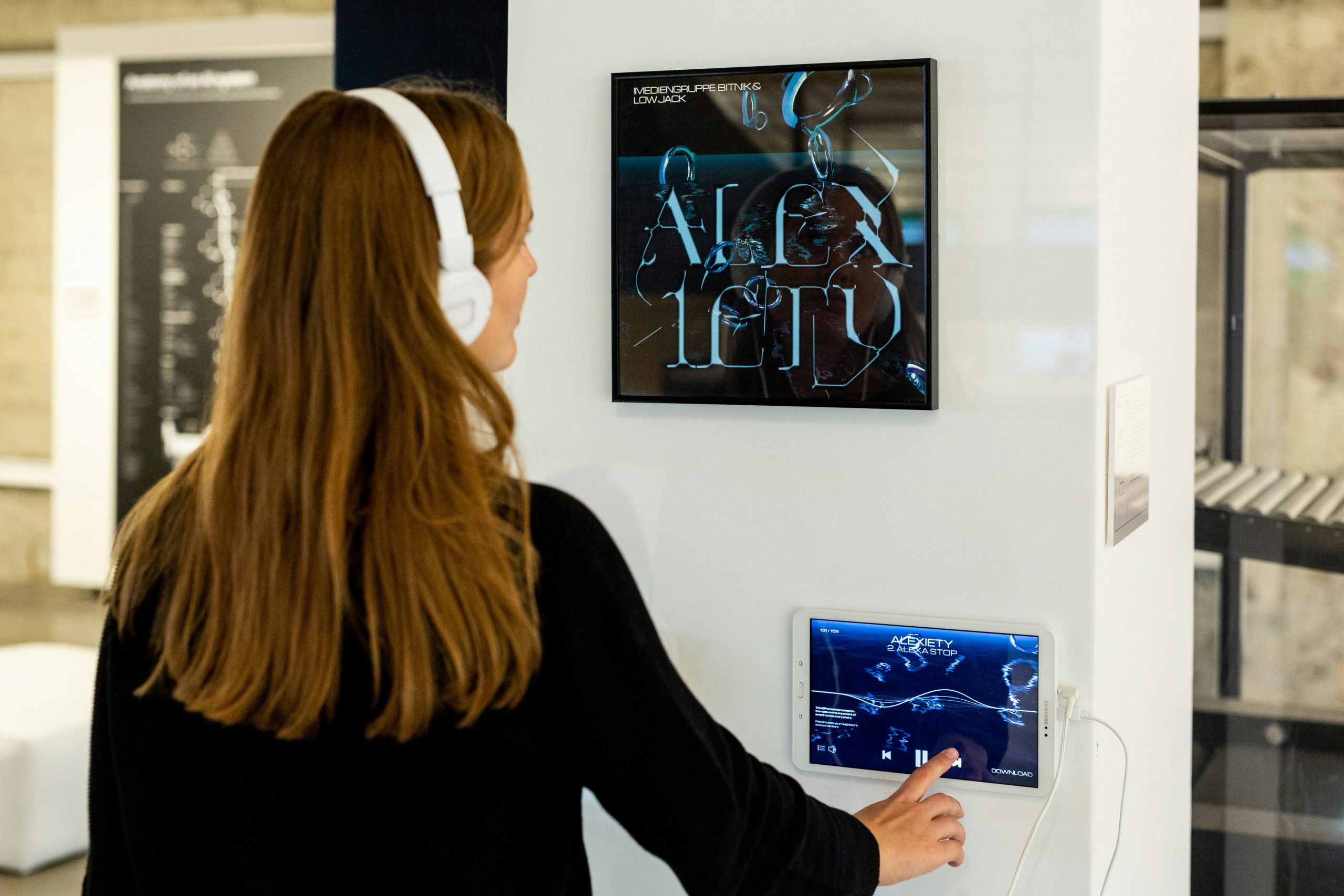Righting victim participation in transitional justice (Tine Destrooper)
How do societies seek to come to terms with legacies of large-scale abuses in order to ensure accountability, serve justice and achieve reconciliation? And what role can victims play in this process? These are crucial questions for scholars and practitioners of transitional justice (TJ). Approaches to TJ are varied. Yet generally four pillars are emphasised: (criminal)justice, truth-seeking, reparations, and guarantees of non-recurrence. TJ practitioners and scholars alike have increasingly been turning to victim-centric,participatory approaches to increase the legitimacy and “efficacy” of TJ processes. By giving victims centre stage, stakeholders hope to better address victims’ needs,enhance local ownership and transform victims into agents of change who can carry forth processes of justice seeking after international actors leave.But what do we really know about how to best organize this victim participation, or what its long-term effects are?
This project studies the long-term and unforeseen effects of victim participation in transitional justice processes. It takes the cases of Tunisia, Guatemala, the DRC and Cambodia to map current and best practices, and to make recommendations for more victim-sensitive approaches to transitional justice.
Principal Investigator: Prof. Dr. Tine Destrooper
Researchers: Safa Belghith, Christian Cirhigiri, Elke Evrard, Brigitte Herremans (see also proposal of Brigitte related to arts/literature and displaced people), Gretel Mejía, Sangeetha Yogendran
Countering erasure (Brigitte Herremans)
Countering erasure: can the arts contribute to restoring justice in Syria?’ This project explores how artistic expressions can help to restore justice in situations of unabated violence where transitional justice (TJ) initiatives are being implemented. The main question is to what extent artistic practices, and literature in particular, can contribute to TJ efforts and counter the narrative silencing of victims.Syria is taken as a case study to examine this question. As the Syrian conflict is ongoing, there is no fully-fledged formal TJ process. Nevertheless, Syrian local activists and international actors are testing certain elements of the TJ toolkit on the ground, such as the documentation of violations of international law and criminal justice.Brigitte will tentatively argue that there is scope to strengthen the current TJ efforts in Syria. The implementation of TJ initiatives might need to be reconsidered in order to guarantee victims’ right to truth and justice, and better assimilate their voices in justice processes. One approach for doing so, is by looking at the ways in which artistic practices can play a role in the development of complementary and innovative avenues toward justice for Syrians beyond trials. She foregrounds artistic practices based on the hypothesis that they can help to rethink some of the existing TJ architecture by understanding and utilizing the evidence differently, including through truth-seeking initiatives, feeding the transitional imagination in ways that are more representative of the experiences of victims, in order to avoid erasure.
Privatised Push-Back of the Nivin (Charles Heller)
This report is an investigation into the Nivin case and new pattern of privatised push-back practice.
In November 2018, five months after Matteo Salvini was made Italy’s Interior Minister, and began to close the country’s ports to rescued migrants, a group of 93 migrants was forcefully returned to Libya after they were ‘rescued’ by the Nivin, a merchant ship flying the Panamanian flag, in violation of their rights, and in breach of international refugee law.
The migrants’ boat was first sighted in the Libyan Search and Rescue (SAR) Zone by a Spanish surveillance aircraft, part of Operation EUNAVFOR MED – Sophia, the EU’s anti-smuggling mission. The EUNAVFOR MED – Sophia Command passed information to the Italian and Libyan Coast Guards to facilitate the interception and ‘pull-back’ of the vessel to Libya. However, as the Libyan Coast Guard (LYCG) patrol vessels were unable to perform this task, the Italian Coast Guard (ICG) directly contacted the nearby Nivin ‘on behalf of the Libyan Coast Guard’, and tasked it with rescue.
LYCG later assumed coordination of the operation, communicating from an Italian Navy ship moored in Tripoli, and, after the Nivin performed the rescue, directed it towards Libya.
While the passengers were initially told they would be brought to Italy, when they realised they were being returned to Libya, they locked themselves in the hold of the ship.A standoff ensured in the port of Misrata which lasted ten days, until the captured passengers were violently removed from the vessel by Libyan security forces, detained, and subjected to multiple forms of ill-treatment, including torture.This case exemplifies a recurrent practice that we refer to as ‘privatised push-back’.
This new strategy has been implemented by Italy, in collaboration with the LYCG, since mid-2018, as a new modality of delegated rescue, intended to enforce border control and contain the movement of migrants from the Global South seeking to reach Europe.
Digitalisation of Labour and Migration (Manuela Bojadžijev)
Digital technologies are transforming the world of work and have far-reaching consequences for mobility and migration. This project studies the reorganisation of labour through digital platforms, and it looks at how digital conditions are also simultaneously changing the forms, practices and our conceptions of labour migration.
Spheres: Journal for Digital Cultures, an open access and peer-reviewed web (Clemens Apprich)
We are witnessing an acceleration of the deployment of digital technologies in border regimes as well as in migratory practices. This does not necessarily make borders ‘smarter’, but it points to spiraling dynamics between border and migration practices to which digital technologies prove central. Technologies deployed by European countries to manage the so-called ‘refugee crisis’ – from fences to the Eurosur drone system – have their reverse side. While digital networks facilitate surveillance systems, they also foster mobility and challenge border regimes at the same time. Persisting migration in defiance of ever more sophisticated border technologies demonstrate the possible detour of control systems. In our fourth issue of spheres, we investigate the significance of digital technologies for migration and the relation between migratory regimes and practices on the one hand, and digital cultures and infrastructures on the other.As an online journal, spheres operates on the premise that already published issues are kept open for new content. Hence, the goal of the workshop is to discuss and develop ideas for further contributions.
Summer School 2020/2021 proceedings
GEMlab-Seminar on Media Ecologies
Bibliography
Assimakopoulos, S., & Muskat, R. V. (2018). Xenophobic and Homophobic Attitudes in Online News Portal Comments in Malta. XJENZA, 6(1), 25-40.
Azzopardi, R. (2012). Recent International and Domestic Migration in the Maltese Archipelago: An Economic Review. Island Studies Journal, 7(1), 49-68.
Baker, P., Gabrielatos, C., KhosraviNik, M., Krzyżanowski, M., McEnery, T. & Wodak, R. (2008) ‘A useful methodological synergy? Combining critical discourse analysis and corpus linguistics to examine discourses of refugees and asylum seekers in the UK press’. Discourse & Society 19 (3): 273-306.
Bernardie-Tahir, N., & Schmoll, C. (2014). Opening up the island: A ‘counter-islandness’ approach to migration in Malta. Island Studies Journal, 9(1), 43-56. Based on qualitative research undertaken since 2010 with African immigrants living in Malta.
Bernardie-Tahir, N., & Schmoll, C. (2014). The uses of islands in the production of the southern European migration border. Island Studies Journal, 9(1), 3-6.Bloch, M. (1991) ‘Language, anthropology and cognitive science’. Man 26 (2): 183-198.
Bradford, S., & Clark, M. (2014). Strangers on the Shore: Sub-Saharan African “Irregular” Migrants in Malta. Journal of Immigrant & Refugee Studies, 12(1), 9-26.
Bugre, M., & Hirsch, S. (2016). Migrant-Led Integration as Peacebuilding: Forging New Alliances Among Third Country Nationals in Malta. Journal of Peacebuilding & Development, 11(3), 98-102.
Buhagiar, L., Sammut, G., Rochira, A., & Salvatore, S. (2018). There’s no such thing as a good Arab: Cultural essentialism and its functions concerning the integration of Arabs in Europe. Culture & Psychology, Culture & Psychology, 2018.
Butler, J. (1993) Bodies That Matter: On the Discursive Limits of “Sex”. London/New York: Routledge.CEPOL (2018). Trafficking in Human Beings. Available at: https://www.cepol.europa.eu. Accessed 25th May 2018.Conference on Security and Co-operation in Europe. Final Act. Helsinki (1975). Available at: http://www.osce.org/helsinki-final-act?download=true. Accessed 20th November 2017.
DeBono, D. (2013). ‘Less than human’: The detention of irregular immigrants in Malta. Race & Class, 55(2), 60-81.
De Groot, Rene. (2012). Nationality, Statelessness and ECHRs Article 8: Comments on Genovese v. Malta. European Journal of Migration and Law, 14(3), 317-325.
De la Peña, Nonny (2010). Immersive Journalism: Immersive Virtual Reality for the First-Person Experience of News. Presence, Vol. 19, No. 4, August 2010, 291–301 © 2010 by the Massachusetts Institute of Technology.
van Dijk, T.A. (1987) Communicating Racism: Ethnic Prejudice in Thought and Talk. London: Sage Publications.Fairclough, N. (1995) Critical Discourse Analysis: The Critical Study of Language. London/New York: Longman.
Falzon, M. (2012). Immigration, Rituals and Transitoriness in the Mediterranean Island of Malta. Journal of Ethnic and Migration Studies, 38(10), 1661-1680.
Falzon, Neil, Pisani, Maria, & Cauchi, Alba. (2012). Research Report : Integration in Education of Third Country Nationals.Farmer, A. (2013). The impact of immigration detention on children. Forced Migration Review, (44), 14-16.Foucault 1966/1989
Galea, Paul. (2016). Insights into Social Empowerment through Peer and Mentoring Support of Young Adult Refugees in Malta.
Garfinkel, H. (1967) Studies in Ethnomethodology. Englewood Cliffs, NJ: Prentice-Hall.Gerard, A., & Pickering, S. (2012). The Crime and Punishment of Somali Women’s Extra-Legal Arrival in Malta. The British Journal of Criminology, 52(3), 514-533.
Grech, H, & Cheng, L.R.L. (2016). Conceptual Framework for Speech Language Pathologists to Work with Migrants : A Focus on Malta. Journal of Educational Issues, 2(2), 141-163.
Grymska, M. I. (2016). Migration crisis in the European Union in 2014-2016 in the context of electoral preferences radicalization (the case of far right political parties). Granì, 19(6), 26-32.Hobbes, Thomas (2016). Leviatán o la Materia, Forma y Poder de un Estado Eclesiástico y Civil/“Leviathan or the matter, forme and Power of A Commowealth Eclessiastical and Civil (State)”, Alianza Editorial.
Holicza, P., & Stone, A.M. (2016). Beyond the Headlines: Economic Realities of Migration and the Labour Market in Malta. Journal of International Studies, 9(3), 88-98.
Keller, R. 2011. ‘The sociology of knowledge approach to discourse’. Human Studies 34 (1): 43-65.
Kirkham, P., Charles and Ray Eames. Designers of the Twentieth Century, The MIT press Cambridge Mass 1995.
Korostelina, K., & Camilleri, L. (2017). Contact, Perceptions of Threat, and Assessment of Migration Policies in Malta. Journal of Identity and Migration Studies, 11(2), 2-154.
Lemaire, L. (2014). Islands and a Carceral Environment: Maltese Policy in Terms of Irregular Migration. Journal of Immigrant & Refugee Studies, 12(2), 143-160.
Mallia, Patricia, & Pace, Roderick. (2013). The Challenges of Irregular Maritime Migration.
Mainwaring, C. (2012). Resisting Distalization? Malta and Cyprus’ influence on EU Migration and Asylum Policies. Refugee Survey Quarterly, 31(4), 38-66.
Mainwaring, C. (2014). Small States and Nonmaterial Power: Creating Crises and Shaping Migration Policies in Malta, Cyprus, and the European Union. Journal of Immigrant & Refugee Studies, 12(2), 103-122.
Mcdermott, J. (2017). At home in a strange land: Refugees in Malta try to start over. America, 216(4), 28.McLuhan, M. (1964). Understanding Media: The Extensions of Man. New York: MacGraw Hill.
Padovese, V., Egidi, A., Melillo Fenech, T., Podda Connor, M., Didero, D., Costanzo, G., & Mirisola, C. (2014). Migration and determinants of health: Clinical epidemiological characteristics of migrants in Malta (2010–11). Journal of Public Health, 36(3), 368-374.
Reisigl, M. & Wodak, R. (2001) Discourse and Discrimination: Rhetorics of Racism and Antisemitism. London/New York: Routledge.Remington R, Fripp S.P., Design and Science: The Life and Work of Will Burtin, Burlington, VT : Lund Humphries, 2007.Shaw, J., Weibel, P., Future Cinema: The Cinematic Imaginary After Film. The MIT press Cambridge Mass 2003.
Skov, G. (2016). Transfer Back to Malta: Refugees’ Secondary Movement within the European Union. Journal of Immigrant & Refugee Studies, 1-17.
Spiteri, D. (2014). Experiences of young (minor) asylum seekers in further education in Malta. International Journal of Lifelong Education, 1-16.
Taylor-East, R., Grech, A., & Gatt, C. (2013). The mental health of newly graduated doctors in Malta. Psychiatria Danubina, 25(2), 250-5.
Triandafyllidou, A. (2014). Multi-levelling and externalizing migration and asylum: Lessons from the southern European islands. Island Studies Journal, 9(1), 7-22.
Vaughan-Williams, N., & Pisani, M. (2018). Migrating borders, bordering lives: everyday geographies of ontological security and insecurity in Malta. Social & Cultural Geography, 1-23.
Wodak, R. (2015). Critical Discourse Analysis, Discourse-Historical Approach. In K.Tracy, C. Ilie and T. Sandel (eds.) The International Encyclopedia of Language and Social Interaction. Oxford: Wiley.
Zahra, Edric. (2013). Malta in Contemporary Human Smuggling.






